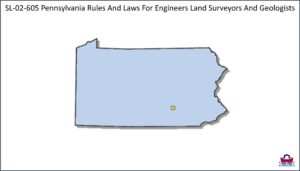
- Home
- Contact Us
- Corporate Solutions
- Webinars
- Packages
- Courses
- Categories
- Live Webinars
- Packages
- Chemical Engineering
- Civil Engineering
- Electrical Engineering
- Petroleum Engineering
- Environmental Engineering
- Geotechnical Engineering
- Mechanical Engineering
- Structural Engineering
- Sustainability
- State Rules and Regulations
- Ethics and Law
- Project Management
- HSSE
- Petroleum Engineering
- Timed & Monitored – Ohio
- On Demand Webinars
- More
Pennsylvania Professional Engineer (PE) Continuing Education Requirements
Pennsylvania PE PDH Requirements
Table of Contents

The State Registration Board for Professional Engineers, Land Surveyors, and Geologists regulates the practice, licensure, and registration of engineers and sets the Pennsylvania PE PDH requirements. Professional engineers (PEs) in the state must earn 24 professional development hour (PDH) credits every two years. A maximum of 12 hours can be carried over to the next renewal period. Ethics courses are accepted but not required. Pennsylvania does not pre-approve course providers or courses. License renewal is on September 30th of odd-numbered years.
Listed below are the Pennsylvania PE continuing education requirements for license renewals.
| No of PDH hours required | 24 PDH | |
| Renewal period | Biennially, by September 30 of odd years. | |
| Provider approval | The Board does not pre-approve course providers | |
| Course content approval | Any program with a clear purpose and objective will maintain, improve, or expand the skills and knowledge relevant to the licensee’s field of practice. Subject matter which is technical in nature or addresses professional ethics, codes, or other similar topics which facilitate the licensee’s professional development as a professional engineer and serve to safeguard life, health, and property and promote the public welfare. | |
| Maximum PDH hours to carry over | 12 PDH | |
| Online courses | No limit on online courses. | |
| State Board Website | https://www.dos.pa.gov/ProfessionalLicensing/ |
We prepared a detailed summary and review of the Pennsylvania professional engineer continuing education requirements (read the article).
Online PDH Courses for Engineers in PA
Packages for Pennsylvania Professional Engineers
Pennsylvania PE PDH Requirements At a Glance
If you are an engineer in Pennsylvania and you are getting ready to renew your license, you may be wondering about the PE continuing education requirements for this task.
When it comes to the continuing education requirements for Pennsylvania engineers, you are required to earn 24 professional development hours (PDH) every 2 years. You are allowed to carry over a maximum of 12 hours to the next renewal period.
License Renewal Dates in Pennsylvania
All engineering licenses are renewed on September 30th of odd-numbered years.
Two to three months before your license expires, the Board will mail renewal information using the most recent address they have on file. Since the postal service will not forward your license, it’s in your best interest to keep your address up to date with the Board.
Should your license expire, you will not be able to continue practicing engineering. If you do, disciplinary actions will be taken against you.
Earning PDH Credits
You have to earn 24 PDH credits during each PA PE renewal period. One PDH unit is earned by spending 50 minutes on an education-related activity.
In Pennsylvania, you don’t need to have the course providers pre-approved before taking any courses. You also can’t receive continuing education credit for courses offered in office management or practice building.
As part of the Pennsylvania professional engineers continuing education rules, after you have completed a course and received any certificates, transcripts, or other documentation, you must keep this information on file for at least 5 years. If you get audited, you must provide this information to the Board. If you are unable to provide a record of courses you have taken, the Board will assume that you did not complete the necessary requirements to renew your license.
If you have taken courses at a college or university, you’ll need to have the institution send a sealed transcript that lists the course information. If you teach or present an activity, including a workshop or seminar, have authored a paper, book, or article, or have obtained a patent, you can use these as continuing education credits. Unless specifically requested, the documentation will not be reviewed by the Board.
In addition, the Board will not keep track of the activities or maintain the records you need to complete your license renewal. That is why it’s advised that you keep this information for a minimum of 5 years.
License Renewal Dates in Pennsylvania
All engineering licenses are renewed on September 30th of odd-numbered years.
Two to three months before your license expires, the Board will mail renewal information using the most recent address they have on file. Since the postal service will not forward your license, it’s in your best interest to keep your address up to date with the Board.
Should your license expire, you will not be able to continue practicing engineering. If you do, disciplinary actions will be taken against you.
Ethics and Professional Conduct for PA PEs
PEs are not required to take ethics or professional conduct courses, but the board will accept them if they do.
As a professional engineer, you must conduct yourself in a way that instills public confidence in your abilities and those of the profession. Since there is an inferred trust between you, your clients, and your employer, taking courses in ethics and professional conduct benefits you and creates the foundation of public trust that engineering is built on.
At PDH-Pro, you can find a variety of different courses in ethics and professional conduct that are accepted by the Board, and taking them might be just what you need to earn the PDH units to renew your license.
Record-Keeping Requirements for Pennsylvania Engineers
You must keep and maintain your continuing education records for at least 5 years. The information that needs to be included with each record includes the name of the educational provider, the date and location of the course and/or activity, the name of the instructor, and how many credit hours were earned.
Remember, you are not required to submit these documents during license renewal. They are only necessary if you are audited.
The Board will only accept certificates of completion if they include the information listed above. Should you be claiming continuing education credits for a college course, teaching, writing a paper, or after obtaining a patent, the Board will determine if you need to provide them with specific documentation.
If you are looking for a way to keep track of your continuing education courses, the Professional State Registration Board for Professional Engineers, Land Surveyors, and Geologists provides a Continuing Professional Competency Activity Log. Not only is this log helpful in keeping track of your PDH credits and determining which license the course can be applied to, but it also creates an easy reference for PDH and license applications.
Continuing Education Activities Accepted by the PA Engineering Board
To ensure compliance with continuing education requirements for Pennsylvania engineers, you are required to complete 24 PDH units of continuing education courses every 2 years. If you have more than one engineering license, you must complete 24 PDH units for each license you hold. If the course content is applicable, you’ll be able to count one class towards more than one license.
The Board also accepts online PDH courses for engineers, and there is no limit on how many PDH units can be earned online. However, the courses need to maintain, improve, or expand your knowledge and skills.
Some relevant online courses you might consider taking include college courses. You might also consider taking correspondence, video-recorded, and televised courses or attending seminars, workshops, webinars, conferences, or professional presentations to meet the continuing education requirements for PA engineers.
Pre-Approval of Continuing Education Activities in PA
You do not have to get pre-approval from the Board before taking a course. However, it’s in your best interest to ensure that the course and/or provider counts toward the required PDH units before signing up.
Free Continuing Education Courses
While the Board does not offer free courses, there are other options you can consider. If you are a member of any professional engineering societies, including the ASCE, ASME, AIChE, or the NSPE, they may offer free courses as a membership benefit.
Pennsylvania Engineering Licensing
To renew your license, you must submit a completed application. However, you can complete this process online.
You’ll want to make sure your application is completely filled out and accurate because the Board will not consider partial applications. If you still have to take an exam, that must be completed in a place designated by the Board. If you are required to take a licensing exam, you will submit your results directly to the Administrative Office of the Board.
It is vital that you submit your application and complete your exam properly during license renewal. If you don’t, your license will expire. To get it reinstated, you’ll have to apply to the Board and pay the registration fee. You won’t be able to pay the renewal fee, and you’ll also have to submit a reactivation application. To save yourself time and effort, make sure you are following the process precisely and accurately.
Engineering Discipline Restrictions
You are responsible for determining which engineering courses are suitable for meeting the continuing education requirements for the state. The Board has put together guidelines that say the courses must be technical and enhance and expand your understanding of the profession.
However, since engineering is a multi-disciplinary profession, it’s a good idea to have a solid understanding of all divisions. Because of this, many engineers complete continuing education courses in other disciplines. Again, this is fine as long as it expands and enhances your current practices. If you have any questions or concerns before taking the course, you should consider contacting the Board.
Fulfill PE Continuing Education Requirements with One Bundle
Earn all 24 PDHs in one easy, cost-effective package—tailored to meet the needs of professional engineers in PA based on their specific discipline.

